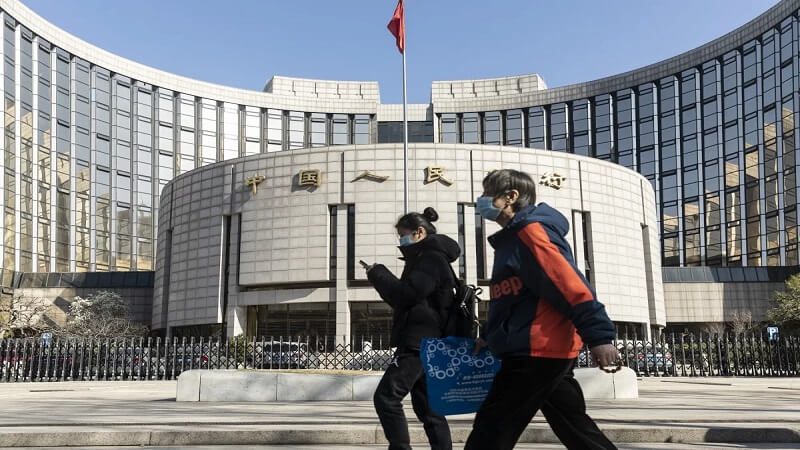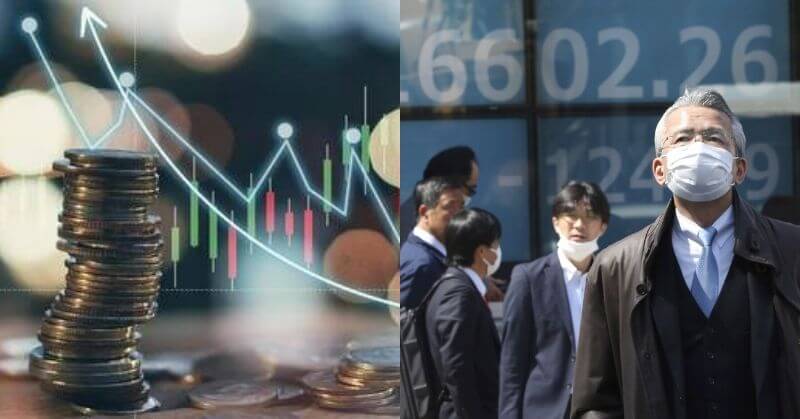Central banks across the globe a struggling to determine if monetary policy can provide economic relief for the contraction in economic growth due to the coronavirus. The issue that most central banks are facing is the oncoming contraction in economic growth and eventual recession that might follow is self-induced. Lower rates cannot incentivize consumers to leave their homes if they are participating in a nationwide lockdown. The only real recipe for consumers is fiscal policy. Once the coronavirus epidemic is in the rearview mirror, monetary policy can provide the impetus for an uptick in growth. Here is what some of the largest central banks have done.
What Has The People’s Bank Of China Done?


In the face of a contracting economy, the PBOC went into action in February to help prop up China’s growth prospects. On February 20, China cut the benchmark lending rate to lower financing costs for businesses. Additionally, the PBOC lowered the 1-year prime rate for loans called the LPR which was a new benchmark for lending introduced in August by 10-basis points to 4.05%. Also, the 5-year loan rate was lowered by 5-basis points to 4.75%.
The PBOC also banks in Shanghai to offer more loans. Commercial banks stepped up and issued 1.31-billion yuan of inexpensive loans to help tackle the outbreak of the coronavirus. The PBOC lowered the rate on 200-billion of one-year loans to 3.15%. They also announced that corporations in the Hubei province would not have to pay pensions, jobless and work-injury insurance until June.
What Did The Bank Of Japan Do?
The Bank of Japan did not lower its short-term interest rates but instead said it would double stock purchases and help companies get loans in response to the coronavirus pandemic. As for interest rates, the BOJ kept its target for short-term interest rates at minus 0.1% and its target for the 10-year Japanese government bond yield at around zero. The BOJ has been purchasing exchange-traded stock funds at an annual pace of ¥6 trillion, and it would double that target to ¥12 trillion for now.
The central bank in Japan said it would set up a new lending facility under which commercial banks can borrow one-year funds from the central bank at zero interest and extend credit to companies that were impacted by the virus. The BOJ said that it would also raise its target for its holdings of corporate bonds to ¥4.2 trillion from ¥3.2 trillion previously and for commercial paper to 3.2 trillion yen from ¥2.2 trillion yen previously. It also continues to increase these target purchases until September. The BOJ is not worried about oil prices as commodity trading has taken oil down to very low levels.
What Has The Reserve Bank Of India Done?
Reserve Bank of India joined other central banks by cutting rates to support its economy. On March 27, governor Shaktikanta Das cut interest rates and put loan repayments on hold. The decline in short term interest rates in India was the largest cut since the global financial crisis in 2008. The report rate was cut by 75-basis points to 4.4% which is the lowest level in 16-years. The reverse repo rate, which is the rate that the central bank borrows was cut by 90-basis points to 4%. The RBI cut its Cash Reserve Ratio by 100 basis points to 3%.
What Has The Federal Reserve Done?
The Fed has been the largest player in the central bank market. The Fed cut interest rates to zero from 1.75% for 3-weeks. It also announced that it would reignite its quantitative easing plan, and would not cap this which is the big bazooka.
Coronavirus has put the entire world into a panic. This deadly virus has caused severe respiratory disorders leading to death. There is a saying that prevention is better than cure. These are the precautionary measures to stay alert from Coronavirus.

